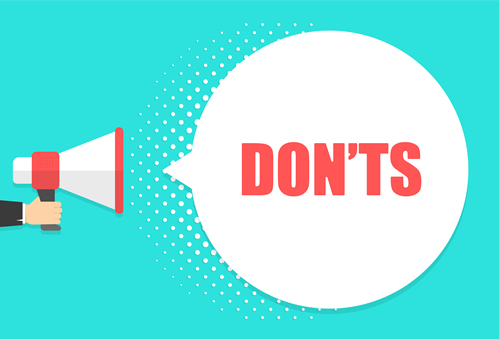Submissions: The Covering Letter
If you ask any published author, each and every one will tell you of the pain of the submission process. So we’re starting a new series on our blog to help you get the most out of your submissions.
Now there are plenty of wonderful resources in our archives that deal with the submission process. ‘How NOT to start your Novel’ is a fantastic series of blog posts that feature an extensive variety of issues that we come across when reading a first chapter. But what we found lacking was some guidance on the various components of the submission as a whole.
So here we are, kicking things off with one of the most important parts of a submission. The covering letter.


Whilst your sample chapters will ultimately decide whether an Agent chooses to offer representation, the covering letter is also key to our understanding of you as an author and a potential client. It’s important that we get to know you as well as your book.
But what makes a good covering letter?
Well first, it may seem obvious but addressing your letter to the correct person is important. We want to know that you have taken the time to really consider your submission. This starts with who at the Agency would be bested suit to represent your work.
Rather than the standard ‘To Whom it May Concern’, or ‘Dear Sir/Madam’, have a look at the Agents that work for us on our website. You will see a list of the authors that they represent and a bit more about what it is that they’re looking for.

Please don’t assume that a single line asking us to read your work is sufficient for a covering letter.
This is a chance for you to champion your work. We want to see the passion and enthusiasm that made you to submit to us.
This information should be no longer than an A4 page. And we’re not talking wide margins, size 9 font and single block of text. It’s not that that we’re being lazy. This shows us that you are focused on your goal. That you’ve considered the facts and given us the exact information that we need.
Now, what should be included in your letter.
Obviously we want to know about your novel, but what we don’t want is a repeat of your full synopsis. You wouldn’t start reading a book on the last page and we don’t like to either. Essentially we are readers who enjoy the thrill of a good book, so don’t spoil it for us by giving us the ending before we’ve even begun.
But we do want to know about your novel. So instead, let us ask a question. If you had 30 seconds to sell your book to an Agent, what would you say? We call this the elevator pitch.

What are the most important details that you want to get across? Well, maybe consider these questions to start.
Who is your central character? Do you envision the book as part of a series or a standalone novel? What genre would you categorise it as? Where is it set? What is the hook that will entice your reader? What is the word count?
Think of the perfect adverts. The ones that make you buy that new TV with surround sound, LED Screen, 4K resolution and a perfect curve, even though you have last season’s model sitting at home.

They’re short and snappy and draw the buyer in hook, line and sinker.
This is what we are looking for in your cover letter. We want to read a few sentences about why your book stands out from the crowd and why we would love to read it.
From here we want to know a bit more about your writing and what drew you to our Agency.
Do you have any particular authors that you identify with and admire? What made you pick out this specific Agency over the hundreds of others around the world? Are there any authors that we represent as an Agency that you would consider your work to align with? Perhaps this is the reason that you chose Darley Anderson over another Agency. This is the time to tell us why.
Now we want to know a bit more about you. Not your whole life story or the name of your first pet. Rather your current profession and long term writing goals. Is this a one-off book or the start of a new career?
And finally, please make sure that you give us as much contact information as you can.

If you have sent a postal submission* (only applicable to submissions to Darley Anderson himself) then please make sure to include an email address. If we love your work and want to read more then email is the fastest way of getting that message across.
This is also important in ensuring that you hear from us promptly. If you don’t provide an SAE (stamped addressed envelope) then we respond to submissions via email. A phone number is also useful.
The Checklist
1. Who are you sending it to?
2. No more than A4
3. The Elevator Pitch
4. What made you pick up the pen?
5. More about you and your writing career.
6. Make sure you include your contact information.
We hope that this will help to give you a better sense of what we look for in a covering letter. If you have questions or want to know more then let us know in the comments or via our twitter or instagram.
All the details about where and how to submit can be found on the Darley Anderson Agency website and the Darley Anderson Children’s Agency website.
http://www.darleyanderson.com/submissions
http://www.darleyandersonchildrens.com/submissions
* Darley Anderson himself is the only Agent who will accept postal submissions. If you would like to submit to Camilla Bolton or Tanera Simons then please send your work via email.
Please also note that the Children’s Book Agency does not typically accept postal submissions and prefers queries to be sent via email.
2 Comments Add yours